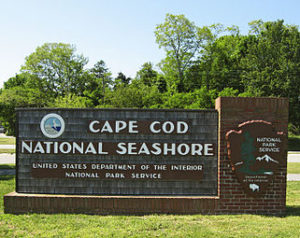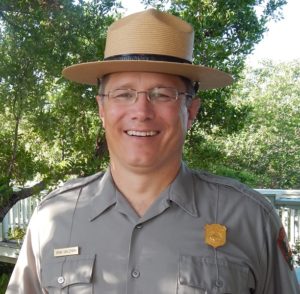Efforts to revive the Cape Cod National Seashore Advisory Commission, which was deep-sixed by the Trump administration and Senate Republicans last year, produced a glimmer of hope on Wednesday. The U.S. House Committee on Natural Resources unanimously approved H.R. 182, which would reauthorize the commission’s existence.
But the outlook for congressional passage of the bill this year remains dim. It may be months before the bill makes it to the floor of the House. And chances for its approval by the Republican-controlled U.S. Senate are not good.
“It’s an uphill battle,” said Richard Delaney, who chaired the commission for years. “Republicans are not very keen on supporting anything that sounds like environmental conservation or protection.” Delaney is president and CEO of the Center for Coastal Studies in Provincetown.

The commission sank from sight on Sept. 26, 2018 when the 10-year “sunset” provision in its authorizing legislation was allowed to take effect. The advisory body was established in 1961, the same year the National Seashore was created, with representatives from each of the six towns in the Seashore as well as the county and state. Its reauthorization had been unanimously approved in Congress in every decade since then — until last year.
The reauthorizing legislation, introduced by Rep. William Keating and Sen. Edward Markey, passed the House unanimously last year but failed in the Senate.
The timing may be better than last year, when the Senate began discussing the bill only in the last weeks of the legislative session, and time ran out. Keating reintroduced the bill in the House this year on Jan. 3.
“It’s happening a lot sooner,” Delaney said, “so there’s more time to find a vehicle to get it passed.”
Dark times before sunset
Even before the sunset provision took effect, President Trump’s Dept. of the Interior made it nearly impossible for the commission to do its work.
For decades, the commission had met four or five times each year to consider environmental and management issues affecting the Seashore and make recommendations to the superintendent. Before a meeting could take place it had to be advertised in the Federal Register, normally a routine procedure. The secretary of the interior approves these advertisements.

“Even when we were authorized by Congress to have meetings, the administration was really reluctant to approve any of our meetings,” Delaney said. “They delayed or did not post it.”
In 2015 and 2016, the last two years of the Obama administration, the commission met a total of nine times. In 2017 and 2018, however, it convened only twice. Its last meeting was on June 18, 2018.
Seashore Supt. Brian Carlstrom, a 30-year veteran of the National Park Service, said Thursday that delays in advisory commission authorization are not unusual.
“Having worked across many administrations, that occurs periodically,” he said. “It wasn’t out of the ordinary. They’ll do a periodic assessment to put a pause on advisory commissions and then proceed. It’s not atypical for advisory commissions either to sunset permanently or for there to be a gap.”
Asked if he had weighed in himself on the issue of reauthorization, he said, “That’s not my role.”
Connecting stakeholders with officials
The advisory commission was created to mitigate local fears about federal land ownership, which was “key in the creation of the Park,” Delaney said. The commission ensured there would be dialogue between the federal government, which controls the Seashore, and local residents on issues relating to commerce and recreation in the 43,607-acre preserve.
Delaney estimated that, over its 57 years, the commission met more than 350 times. Although the group had no official authority, its formal and transparent process pressured superintendents to acknowledge and take into account local needs.
During his years on the commission, Delaney said, he has only twice witnessed a superintendent reject its recommendations. “In the vast majority of cases, they’ve listened to us and taken our advice,” he said. “It’s very effective.”
Carlstrom agreed that advisory commissions can be helpful.

“It’s a definitive, prescribed method for working with stakeholders,” he said.
Since the commission’s sunset last year, Delaney said, he would have liked to discuss several key issues, including sharks, beach safety, and climate resiliency with Seashore management. Without advice from the commission, Carlstrom said, he has been working primarily with town managers to assess local needs.
Although the Trump administration is making headlines by rolling back regulations on clean air and water, subtler actions, like personnel changes in the National Park Service, are also having long-lasting effects.
“All the anti-environmental appointments [this administration] has made — it’s tinkering with day-to-day operations,” said Delaney. “Their destructive influence is getting all the way down to little advisory committees. It will take a long while to undo the damage that’s being done.”



